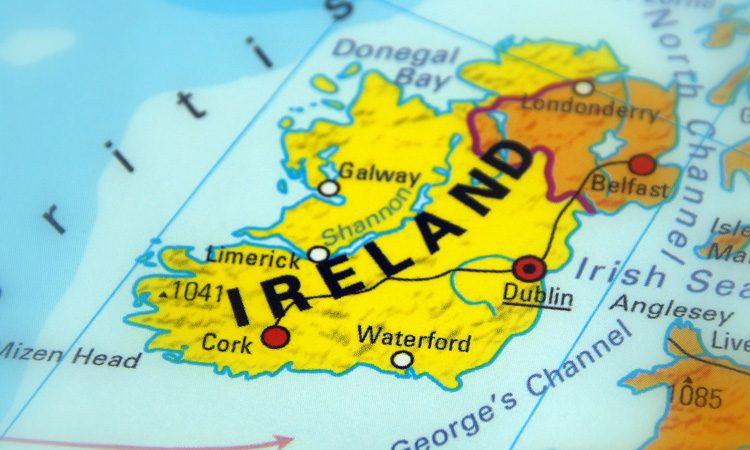How will Brexit impact meat trade across the Irish border?
- Like
- Digg
- Del
- Tumblr
- VKontakte
- Buffer
- Love This
- Odnoklassniki
- Meneame
- Blogger
- Amazon
- Yahoo Mail
- Gmail
- AOL
- Newsvine
- HackerNews
- Evernote
- MySpace
- Mail.ru
- Viadeo
- Line
- Comments
- Yummly
- SMS
- Viber
- Telegram
- Subscribe
- Skype
- Facebook Messenger
- Kakao
- LiveJournal
- Yammer
- Edgar
- Fintel
- Mix
- Instapaper
- Copy Link
Posted: 10 October 2019 | Sam Mehmet (New Food) | No comments yet
Peter Hardwick, BMPA Policy Advisor, joined a panel discussion on BBC Radio Ulster’s ‘Inside Business’ to discuss the implications of Brexit for Irish food businesses.


Arrangements surrounding the Irish border post-Brexit could have huge impacts on the trading conditions of Irish food businesses. The effects could force some companies to completely re-think their supply chain as they deal with increased costs and reduced competitiveness, according to The British Meat Processors Association (BMPA).
BMPA Policy Advisor, Peter Hardwick, joined a recent panel discussion on BBC Radio Ulster’s ‘Inside Business’ programme to discuss the potential implications of Brexit for Irish food businesses. Here are some of the key takeaways…
Export Health Certificates (EHC)
On the day of Brexit, the UK will need to be formally listed as a third country by the EU in order to trade with them. This trade will likely have to meet different food processing requirements and will require new Export Health Certificates (EHC) for all products of animal origin, including live animals.
Previous food products could move freely between countries, but post-Brexit, products, or ingredients of animal origin, will need a vet or environmental health officer to check and sign it off.
Further to this, any vehicle crossing the border will need an EHC for each individual item. It will also need to potentially contain an audit trail for all products of animal origin that went into each item.
With a current 10-12 percent shortage of vets in the country, the workforce of vets required to perform these checks will be put under further pressure. There has been discussion of creating a certification support officer role to assist existing vets but, it is currently uncertain. The EHC still needs to be completed by a vet who has full oversight of processes.
Regulatory requirements
Third country listing will mean that, in some cases, trade products which are currently traded may be affected. An example of this is sausages and mince; as part of the EU, the UK can trade fresh, chilled products, but as a third country, those same products will be required to have been frozen to -18°C. This means that, overnight, some fresh products will not be able to cross borders.
Tariffs
Northern Irish food businesses will become less competitive than their southern counterparts.
According to the latest government advice, on day one of Brexit they do not intend to impose any tariffs, checks or controls on products moving from south to north. However, the day the UK becomes a third country, any products moving from north to south will have instant tariffs between 15 and 150 percent imposed.
The Irish border
If the government relaxes the requirements, products moving from south to north will not require customs declarations if they do not intend to ship to the UK mainland.
It has been suggested that this may be difficult for police, particularly if those products are processed first in some way. It could, for example, mean that the 230,000-tonne tariff quota for beef may be circumvented by trans-shipping via Northern Ireland and thus, provide a route for Irish (and other third country) beef into the UK.
Part of the problem is the physical checking of most consignments. This because the government has said that there is not going to be inspection posts at the border. However, during the panel discussion, it was suggested that it would be impractical to divert consignments via existing inspection posts like Dublin, because current legislation requires that checks cannot be carried out too far away from the border.
To mitigate this, an all-Ireland food standards zone has been proposed which would start to address the problem. The question, however, is would this just move the issue of border control elsewhere in the UK?
Related topics
Regulation & Legislation, Supply chain, Traceability, Trade & Economy









